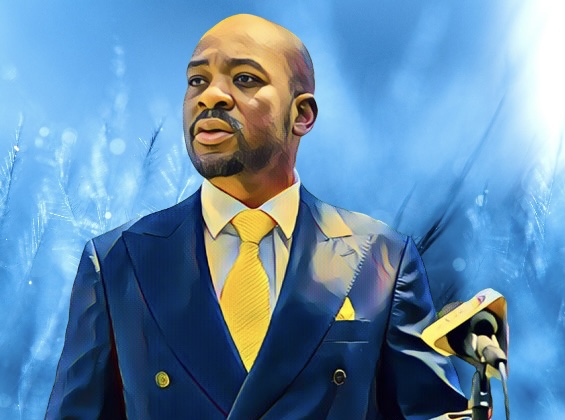Opposition leader Nelson Chamisa announced his departure from the Citizens Coalition for Change (CCC), a party he formed just a year ago from the remnants of the once-dominant Movement for Democratic Change (MDC).
Chamisa’s departure follows months of internal strife, largely attributed to actions by Sengezo Tshabangu, the self-proclaimed Secretary-General. Tshabangu has been noted for his unilateral decisions to withdraw elected members from Parliament and local councils.
“Fellow citizens, I officially inform you that, effective immediately, I am no longer part of CCC,” Chamisa stated. “My commitment to Zimbabwe, asserting your victory, honouring the citizens’ mandate, and fulfilling God’s calling for leadership remains undeterred.”
Chamisa emphasized the need for fresh approaches and unity in the pursuit of freedom, change, and transformation for Zimbabwe. “Giving up is not an option. I will keep you updated on the next steps,” he assured.
This decision comes after Chamisa lost effective control of the CCC. Key institutions like the Zimbabwe Electoral Commission (ZEC), the Local Government Ministry, the Parliament, and the courts began favoring communications from Tshabangu over those from Chamisa.
Chamisa’s political career has been marked by similar struggles for control. His tenure in the MDC was overshadowed by internal conflicts, leading to his eventual loss of influence within the party. This internal discord culminated in a “palace coup” initiated by his former Secretary-General Douglas Mwonzora, along with Vice President Elias Mudzuri and Chairperson Morgen Komichi. Following its fallout with former leader Thokozani Khupe, the MDC has seen a significant decline in its influence and appeal.
Speculation about Chamisa’s next political move is rife. Ostallos Siziba, his Deputy Spokesperson, hinted at a new political direction last week, referring to Chamisa as the leader of a ‘Democratic Alternative in Zimbabwe.’ However, desktop research indicates that Siziba has used this term for Chamisa since their days in the MDC, suggesting a longer-term vision for this new political entity.
Chamisa’s exit from the CCC marks a significant shift in Zimbabwe’s political landscape. It raises questions about the future direction of opposition politics in the country and what this means for the broader struggle for democratic reform. As Zimbabweans and political analysts alike await further developments, Chamisa’s next steps are keenly anticipated.


